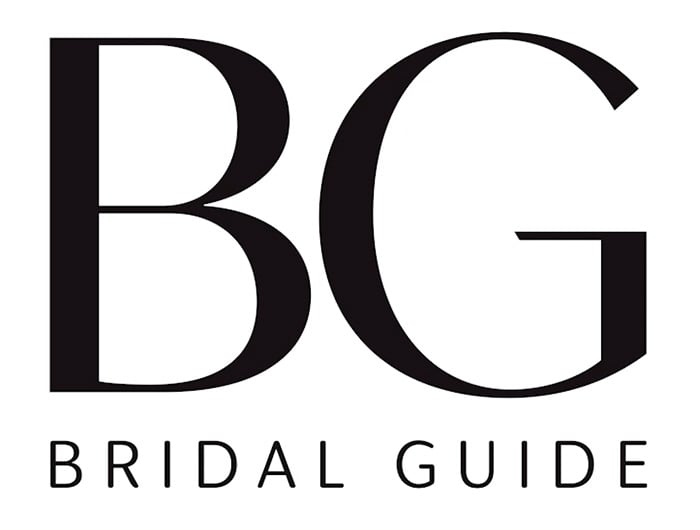Pre-marital counseling may seem like a thing of past — and with secular weddings on the rise, couples don’t need their priest’s permission to get married any more than they need their parents’.
By: Kat RichterFor many modern couples, traditional forms of pre-marital counseling may seem outdated, out of touch, or simply out of reach. But before you write them off, consider these 10 pre-marital counseling alternatives that you and your partner can do at home.

Photo Credit: iStock
1. 36 Questions from the New York Times
A recent Modern Love essay by Mandy Len Catron set the blogosphere atwitter with the suggestion that you can fall in love with someone simply by answering a series of 36 questions. Based on a 20-year old study by psychologist Arthur Aron, Catron’s essay explores the connection between mutual vulnerability and connectedness — and provides the perfect base from some DIY pre-marital counseling of your own.
The idea is to sit down with your partner (or potential partner) for about an hour to talk through three series of questions, maintaining eye contact the whole time. They start off easy (“Given the choice of anyone in the world, whom would you want as a dinner guest?”) and get progressively more intimate (“Of all the people in your family, whose death would you find most disturbing? Why?”).
Although these questions weren’t designed to replace more traditional forms of pre-marital counseling, they’re a great way to deepen your connection with your partner (and reveal any potential skeletons in the closet). Download this free app to try it yourself.
2. The 5 Languages of Love
Another great DIY resource is Gary Chapman’s The Five Languages of Love. This easy-to-read text helps couples identify how they love and how they need to be loved in return. Chapman’s website has tons of great tools and resources, many of which are free and available for download (including his Love Languages Personal Profile, an online assessment to help couples determine, for example, whether they speak the “language” or quality time or that of receiving gifts). Just bear in mind that Chapman’s work does have a Christian bent.
It is also helpful to follow up on his program with some serious conversations to help you some more practically-minded assessments to suss out the nitty gritty, like how to pay down your student loan debt or whether or not you’re both on the same page about having kids.
3. Radical Marriage
Thrice-married relationship coach David Steele has certainly had his fair share of marital woes, which is perhaps why his book, Radical Marriage: Your Relationship as Your Greatest Adventure, co-authored by his wife Dana, is about as practical as you can get. Don’t be put off by the unfortunate cover art and annoying pull quotes; instead, try implementing some of Steele’s suggestions, such as planning date nights in groups of four: one planned by you, for you (focusing on things that you enjoy), one planned by you but catering to your partner’s interests, another planned by your partner for himself or herself, and finally, one more planned by your partner especially for you. (It sounds confusing, but Steele breaks everything down into easy-to-follow, bite-sized pieces.)The book also has a lot of helpful exercises for co-journaling, weekly check-ins, and even ranking your sex life to find room for improvement.
4. Monthly Countdown
When you’re planning a wedding, it’s easy to lose sight of the fact that actually, you’re planning a marriage. So take some time out at least once a month from cake tastings and dress shopping to forget about your wedding and work on laying a foundation for the rest of your lives together. In her book The Conscious Bride’s Wedding Planner (subtitled “How to Prepare Emotionally, Practically, and Spiritually for a Meaningful and Joyous Wedding”), counselor Sheryl Paul suggests couples start commemorating their wedding date on a monthly basis before getting married. You and your partner can use this time to reconnect as a couple, go for a hike, or just take a deep breath and step back from the minutiae of wedding planning.
5. Quaker Clearness
To most, the word “Quaker” conjures an image of an old man in a funny hat on a box of oatmeal. But Quakers (aka members of the Religious Society of Friends) did away with all the cumbersome (and often sexist) trappings of traditional church weddings long before it was fashionable to do so. It’s what happens before a Quaker wedding, however, that serves as a great model for DIY pre-marital counseling.
Because Quakers believe that everyone is equal (and that no one, therefore, is “closer” to God than anyone else), most reject traditional clergy. As such, couples looking to get married form their own “Clearness Committee” to help them discern whether or not they’re ready for marriage.
Committees generally consist of three to six people who meet with the couple several times in the months leading up to the wedding (schedule Skype meetings!). Members take turns asking questions, ranging from what drew the couple together to how they plan on handling their finances; however, they must refrain from passing judgment or making suggestions. Though this approach comprises a formal spiritual practice amongst practicing Quakers, the no-judgment model can provide a great alternative for more secular couples.
6. Rent a Preacher
If you and your partner want to have a religious wedding but lack the connections to make this happen, you can always hire an officiant. (This may be easier than trying to worm your way back into the good graces of your childhood church after 20 years of non-attendance). In addition to leading you through your big day, many officiants now offer pre-marital counseling as part of their overall “package.” This is especially true of retired pastors or other religious/spiritual leaders; most will want to get to know you as a couple, so before you sign, ask about scheduling a few virtual counseling sessions leading up to your wedding.
7. Relationship Counselor
If religious officiants aren’t quite your cup of tea, consider a few virtual sessions with a relationship counselor instead. Many couples wait until they have problems to seek professional help or guidance, and by that point, it may be too late. Start your marriage off on the right foot by discovering and dealing with any potential issues before they become too big to handle. If finances are a concern, check out your local university. Many offer discounted rates for sessions with therapists, social workers, and counselors-in-training.
8. Workbooks
All the self-help books in the world won’t aid you and your partner in preparing for a successful marriage unless you take the time to actually work through the prescribed exercises. Find one that works for you and your partner, and set aside some time, ideally before you start planning your wedding, to talk through your values and make sure you are both on the same page. The resources mentioned in this article are just the tip of the iceberg — some are geared more towards brides and some are geared more towards couples — so determine what will make you and your partner comfortable: new age spiritually or traditional counseling with a trusted religious advisor?
9. Letters from parents and friends
Another tried-and-true Quaker tradition is that of asking for letters of support from the parents of the couple in question. But why limit this practice to your ‘rents when you can get your friends in on the action as well? After all, if your college roommate hates your fiancé, has always hated him, and will continue to do so, it would be nice to know why, and it would be nice to know now as opposed to five years down the road. (After all, what good is “I told you so” if you’ve already gotten divorced?)
So ask your family and a few close friends to write a letter of support for your marriage. If they have concerns, this will give you and your partner to decide if their concerns are legitimate and, if so, to address them. Letters of support are especially helpful for marriages that will result in blended families, as they will give all of the children involved the chance to make their voices heard and get on board with the union.
10. Your Parents vs. My Parents
You’re marrying your partner, not his or her family, but let’s face it: family drama doesn’t stop just because you’ve finally come to an agreement on your guest list. And whether you’re close to your family or not, chances are, you’ve subconsciously adopted many of their beliefs, attitudes, and values.
Set aside some time with your partner talk through each of your parents’ marriages and/or the reasons they stayed together or got divorced. Be honest with your partner and with yourself: just because your family’s dynamics may seem “normal” to you, they’re not necessarily normal to your partner. Talk through your expectations about finances, having children, raising children, and splitting household tasks. You may be surprised to find that you and partner have very divergent opinions, simply because of your upbringings, so talk through these expectations and assumptions before they become problematic.







